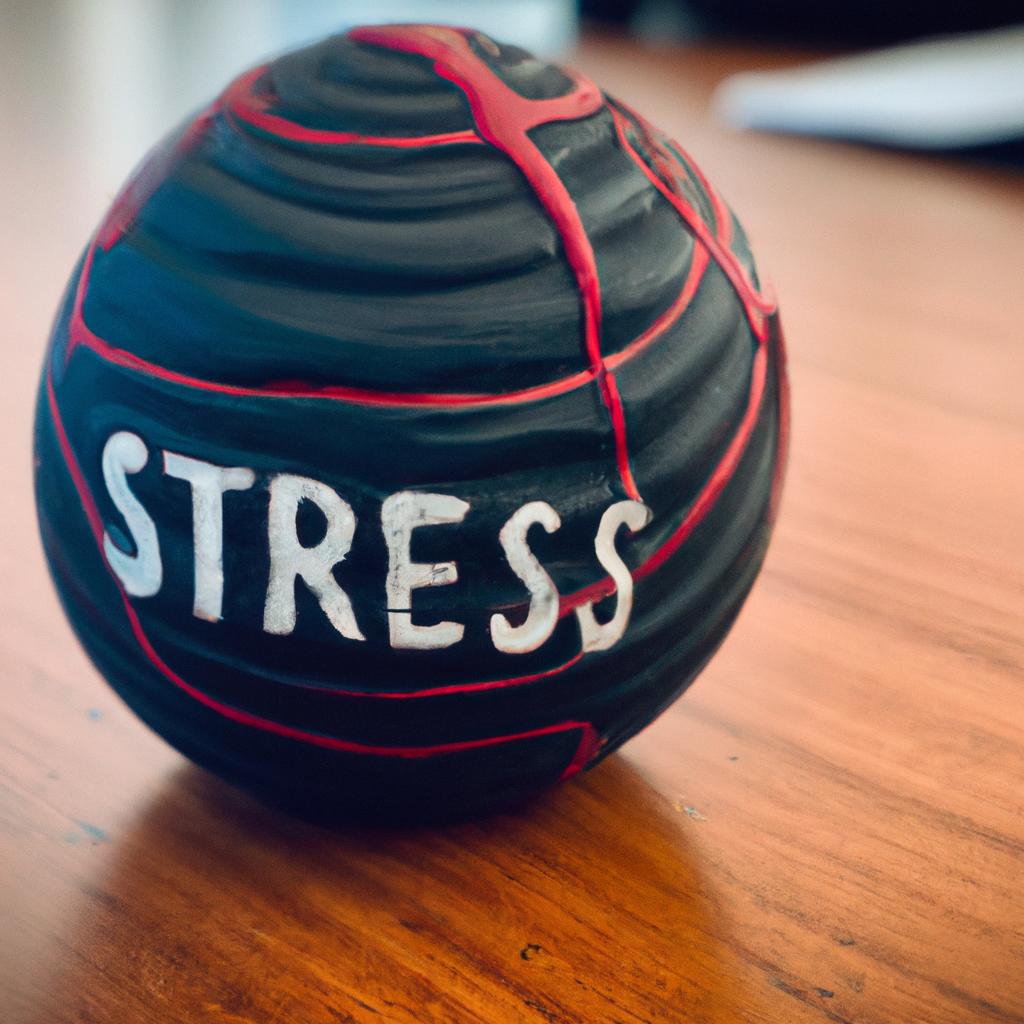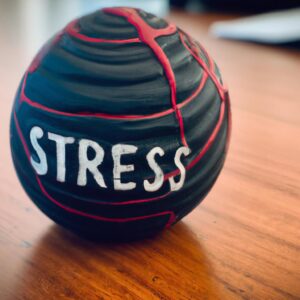Introduction
Stress and anxiety are common emotions experienced by people in our busy, modern lives. Stress can be caused by a specific event or situation in our lives, while anxiety is a sense of fear or worry about what lies ahead. Both of these emotions can have a negative impact on our mental and physical health if we don’t take steps to manage them effectively.
It is important to understand how stress and anxiety can manifest in our everyday lives and why it is important to take action in reducing them. This guide will provide you with effective ways to reduce stress and anxiety, so you can lead a happier, healthier life.
Basic Things You Can Do Everyday to Reduce Stress and Anxiety
Stress and anxiety can be overwhelming and can have negative impacts on both our mental and physical health. Fortunately, there are things you can do each day to help reduce stress and anxiety and make it easier to cope with. Here are some of the easiest and most effective steps you can take everyday to reduce stress and anxiety:
- Exercise regularly: Exercise is a great way to reduce stress and clear your mind. Even just a short walk or some light stretching can be enough to release endorphins and help you relax.
- Get a good night’s sleep: Making sure you get enough sleep each night is essential for managing stress and anxiety. Aim for at least 8 hours of rest each night.
- Journaling: Writing down your thoughts and feelings can be a great way to help recognize and process the causes of your stress and anxiety.
- Spending time with family and friends: Spending quality time with those you love is an important part of reducing stress and anxiety. This could include going for a walk together, having dinner, or playing board games.
- Prayer and meditation: Taking even just a few minutes each day to meditate or pray can help to calm your mind and body and reduce stress levels.
By incorporating these simple practices into your daily life, you can begin to reduce stress and anxiety in your life.
Nutrition and Diet
Making changes to your diet can play an important role in reducing stress and anxiety. While it is not a solution on its own, making certain dietary choices can help manage both stress and anxiety levels.
You should avoid foods that are high in sugar, salt, and saturated fats as they can further increase feelings of stress and anxiety. On the other hand, you should focus on eating foods that are rich in vitamins and minerals such as fruits, vegetables, nuts and seeds, whole grains, fish, and lean proteins.
It is important to stay hydrated by drinking plenty of water throughout the day as dehydration can increase feelings of stress and anxiety. Additionally, you should limit your intake of caffeine and alcohol, as these can also contribute to increased feelings of anxiousness and stress.
Cognitive Behavioral Therapy (CBT):
Cognitive behavior therapy (CBT) is a type of psychotherapy that uses psychological techniques to change negative patterns of thinking and behavior. It focuses on recognizing and changing unhelpful thoughts, beliefs and behaviors that lead to feelings of stress and anxiety. Cognitive behavioral therapy can help you to become more aware of your thoughts, feelings and reactions, so that you can better manage them.
The different techniques used in cognitive behavioral therapy include identifying and challenging negative thought patterns, using positive affirmations and reframing our thoughts to be more positive and helpful, problem solving and relaxation training. Identifying and challenging negative thoughts and reframing them to be positive can help to reduce stress and anxiety levels. Learning relaxation techniques can also help to reduce tension and feelings of anxiety.
Mindfulness: Reducing Stress and Anxiety
Mindfulness is a practice of focusing on the present moment and allowing yourself to become aware of your thoughts and feelings without judgement. Practicing mindfulness helps to reduce stress and anxiety by allowing us to be more aware of the things that cause us distress. It teaches us to take a step back and observe our emotions, rather than letting them control us.
There are many different ways you can practice mindfulness in your life, starting with simple techniques such as mindful breathing and body scans. Mindful breathing involves taking long, slow breaths and focusing your attention on each inhalation and exhalation. You can also try a body scan, which involves bringing your attention to each part of your body, one by one.
Another way to use mindfulness is to take time out for yourself each day and focus on experiencing the present moment. This could involve taking a walk outside, listening to music, or simply sitting quietly with your eyes closed. Whatever you choose to do, it’s important to take time to be conscious of your thoughts, feelings, and sensations.
Finally, it’s beneficial to practice mindfulness in difficult situations. When you start to feel overwhelmed by stress or anxious thoughts, focus on taking several deep breaths and mindfully observe what’s going on. This can help you to find clarity and enable you to address the situation more effectively.
Home Remedies for Reducing Stress and Anxiety
Stress and anxiety can be difficult and overwhelming to deal with, and sometimes it can feel like there’s no way out. Fortunately, there are some home remedies that can help you reduce stress and anxiety. Before trying any of these remedies, it is important to talk to your doctor about the best course of action.
Some natural herbs and supplements that may help reduce stress and anxiety include: passionflower, kava, valerian root, chamomile, and lavender. Exercise can be a great way to relieve stress and boost your mood, and the same goes for getting enough sleep. Other methods such as journaling, prayer and meditation have also been shown to help with stress and anxiety. Spending time with family and friends can also be a great way to reduce stress and anxiety levels.
It’s important to note that these remedies are not meant to replace medical advice. If you find that you are struggling with extreme stress and anxiety, please contact a mental health professional for additional help.
Benefits of Connecting With Nature
Spending time outdoors can be a great way to reduce stress and anxiety. Being in nature can help you relax, feel more connected with the world around you, and get away from the chaos of everyday life. Nature has a calming effect, and activities like going for walks, swimming, camping, and gardening can be especially helpful in managing stress and anxiety.
Getting outside and enjoying the fresh air and sunshine can also act as a natural mood booster. Sunlight increases serotonin production, which is associated with improved feelings of wellbeing. Exposure to nature also has other therapeutic benefits, such as decreased cortisol levels, better concentration and greater self-esteem. Engaging in outdoor activities can provide a sense of accomplishment, teaching you that you can challenge yourself, take risks, and succeed.
Some other activities you can do in nature to help manage stress and anxiety include:
- Taking a hike in the forest
- Observing birds or wild animals
- Gardening or planting flowers
- Visiting a park or lake
- Playing sports outdoors
- Doing yoga or meditation in the sun
Connecting with nature can renew your energy and provide a different perspective on life. So, if you’re feeling overwhelmed by stress and anxiety, try getting out into nature!
Identifying Your Triggers
When it comes to reducing stress and anxiety, it is important to first identify what is causing them. It is likely that different situations, people, and events in your life are causing tension or distress. Once you know what is triggering these feelings, it will be easier to come up with solutions for reducing them.
One way to identify your triggers is by writing down the situations, people, and events that make you feel stressed or anxious. This will allow you to remember them more easily and recognize patterns in your reactions. You can also take note of your physical reactions and how long the feelings last for. This information can help you create an action plan for dealing with anxiety-inducing triggers.
Writing down your triggers and the associated reactions can help you better understand yourself and the sources of your stress. It can also give you a sense of control over your emotional state. By recognizing what is causing your stress and anxiety, you are empowered to take steps to reduce it.
Re-framing Your Thoughts to Reduce Stress and Anxiety
One of the most effective ways to reduce stress and anxiety is to re-frame your thoughts. Our thoughts can have a powerful effect on our emotional state, so changing them can help us manage our stress and anxiety levels.
Rather than dwelling on negative thoughts and worries, we should focus on positive ones. This can be as simple as using positive mantras such as “I am capable” or “I will get through this”. It is also important to be mindful of the language you use when talking to yourself. Speak as kindly as you can and avoid words such as ‘should’ or ‘must’. Doing this will help create an environment of positivity and self-confidence, which can help reduce stress and anxiety significantly.
Another way to re-frame your thinking is to look for the silver lining in difficult situations. It can be hard to think positively in the middle of a stressful situation, but if you take a step back, you may be able to see how the experience serves some greater purpose. Looking at things with this attitude can help reduce stress and give you a sense of control.
Re-framing your thoughts is a powerful tool that can help reduce stress and anxiety. By focusing on positive thoughts and mantras, and looking for the silver lining in difficult situations, you can begin to feel more calm and in control.
Cultural Perspectives on Stress and Anxiety
When it comes to reducing stress and anxiety, different cultures have different ideas and techniques. Traditional medicine is used by many cultures around the world to treat stress and anxiety. Music therapy and art therapy may also be used to help people relax and reduce symptoms of anxiety.
Traditional medicine, such as Chinese or Ayurvedic medicine, can help us to understand how different foods, herbs, and spices can affect our body and mind. Herbs and supplements are often used in traditional medicine to help with the treatment of stress and anxiety by calming the nervous system and providing a sense of well-being.
Music therapy is used to help manage anxiety and lower stress levels by helping to relax the body and mind. Studies have shown that listening to calming music can reduce anxiety levels. Art therapy focuses on expressing thoughts and feelings through creativity. Research has shown that creativity can help reduce stress and anxiety.
Different cultures around the world have unique ways of dealing with stress and anxiety, and these methods can be useful for those who are looking for alternative treatments. It is important to explore different cultural perspectives on reducing stress and anxiety, and see which strategies might work best for you.
Seeking Professional Help
When it comes to stress and anxiety, there are some issues that may require the help of a mental health professional. It’s important to identify underlying issues that could be causing your stress and anxiety. Oftentimes, these issues can be better addressed by a therapist or psychiatrist, who has the experience and training to properly assess and diagnose the problem.
If you are feeling overwhelmed with your stress and anxiety levels, it is best to speak to your doctor or another healthcare professional. They can help you determine if you should seek professional help to get the support and guidance you need.
It can be difficult to identify when to seek professional help for stress and anxiety, so it is important to be aware of the following signs:
- You’re experiencing excessive fear or worry that interferes with daily activities.
- You are avoiding certain activities or places because of your fear or anxiety.
- You are having difficulty sleeping or eating due to your stress or anxiety.
- Your feelings of anxiety or stress are lasting for more than two weeks.
If any of these signs apply to you, it is advisable to reach out to a mental health provider for help. A professional can provide you with the necessary support and guidance to manage your stress and anxiety more effectively.
Conclusion
Reducing stress and anxiety can be done by making simple, yet effective changes to your lifestyle. Exercise, sleep, healthy nutrition, journaling, spending time with family and friends, prayer and meditation, cognitive-behavioral therapy, mindfulness, home remedies and connecting with nature are all important ways of reducing stress and anxiety. Additionally, being mindful of what triggers your stress and anxiety, re-framing your thoughts, and exploring different cultural perspectives on stress reduction can help to reduce your feelings of distress.
If you feel that the stress and anxiety in your life is unmanageable, please look for professional help. A mental health therapist can help you to explore the underlying causes of your distress, and together you can develop strategies for dealing with these issues.
We hope this guide has given you useful advice on how to reduce stress and anxiety in your life. If you need additional help, please look at the resources listed below for further support.
comments: 0



